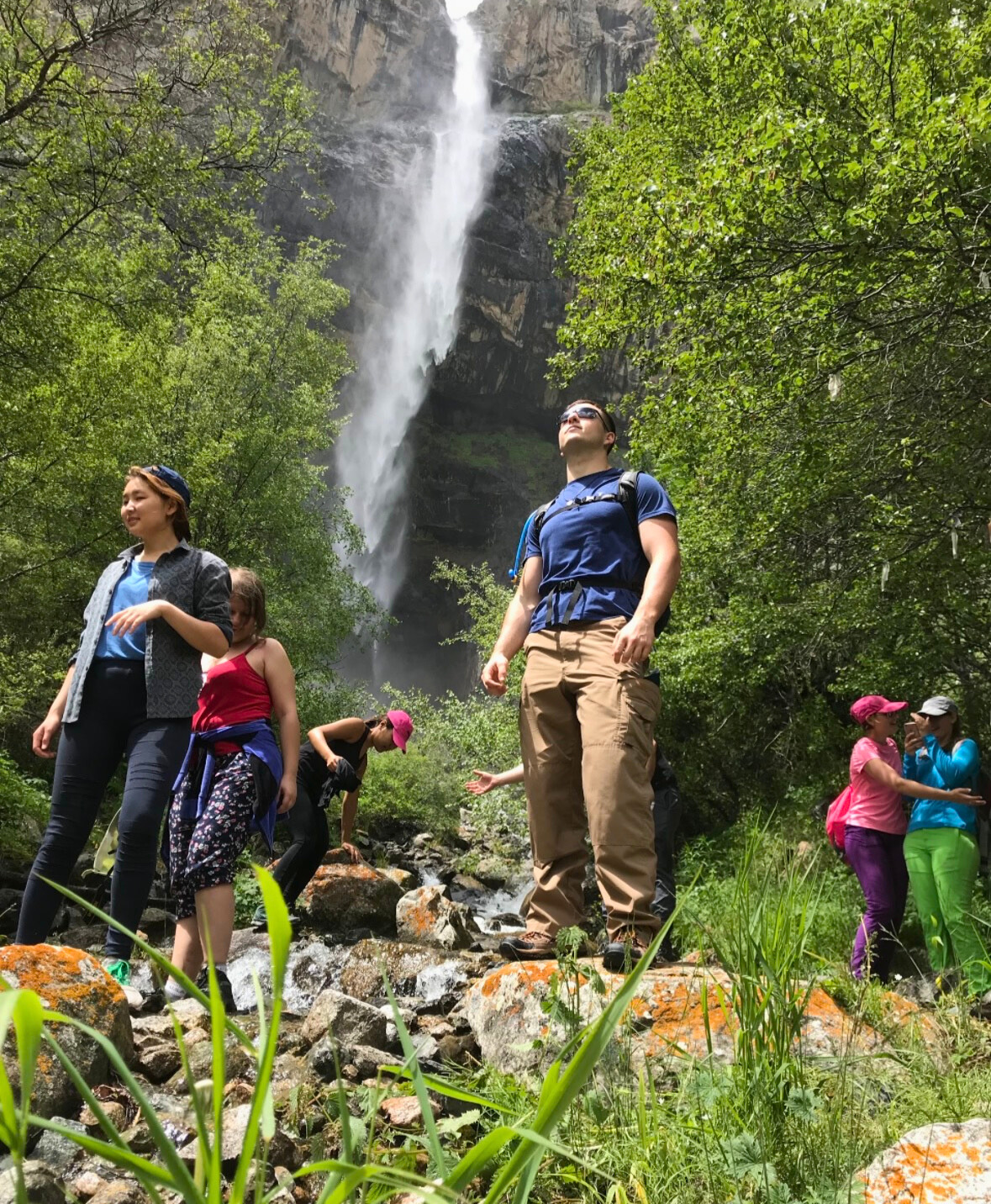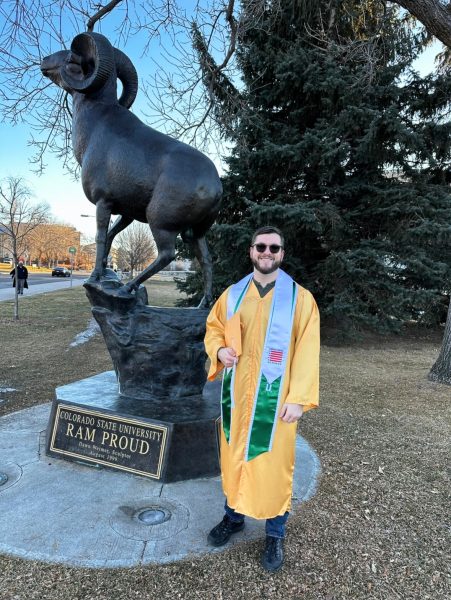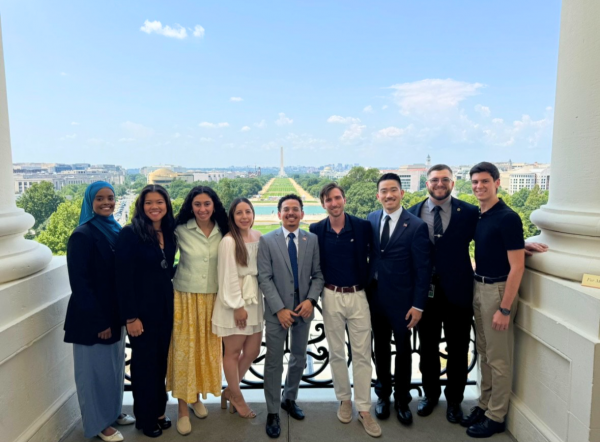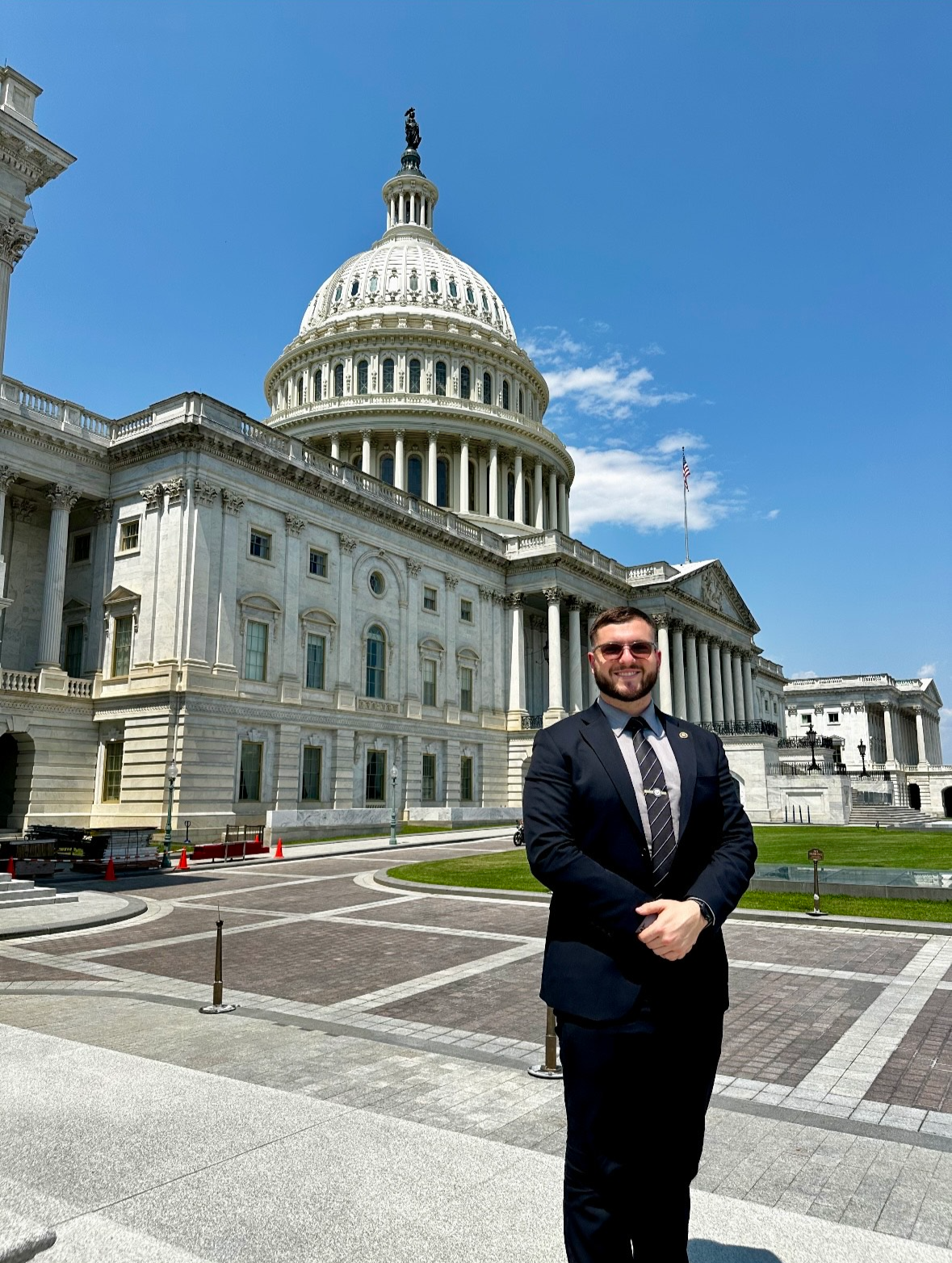
This past summer, Justin Frigault (B.A., ’23) secured himself a front-row seat to how U.S. foreign policy is actually made. As a legislative fellow on Connecticut Senator Richard Blumenthal’s national security team, he had the opportunity to observe and participate in the nuanced process of introducing a bill to Congress.
Frigault landed on Capitol Hill thanks to an internship provided by the highly competitive Rangel Fellowship, which he received at the start of 2024. Supported by the U.S. Department of State, the Charles B. Rangel International Affairs Program is designed to prepare young people for careers in international service and diplomacy. The program provides two internship opportunities—one in Washington D.C. and another at a U.S. Embassy. Once fellows complete their internships and graduate with a master’s degree, they receive a five-year appointment in the State Department Foreign Service.
While calling the environment in D.C. “fast-paced” would be an understatement, Frigault found his time there exhilarating. “I came in at a very interesting point where Congress was finalizing the National Defense Authorization Act for the fiscal year of 2025,” said Frigault.
“I had to absorb and distill information down quickly and be able to recognize all the moving parts of one amendment,” he continued. “It was exciting to talk to people and ask, ‘Why are we proposing this? In what ways is this beneficial for the country?’”
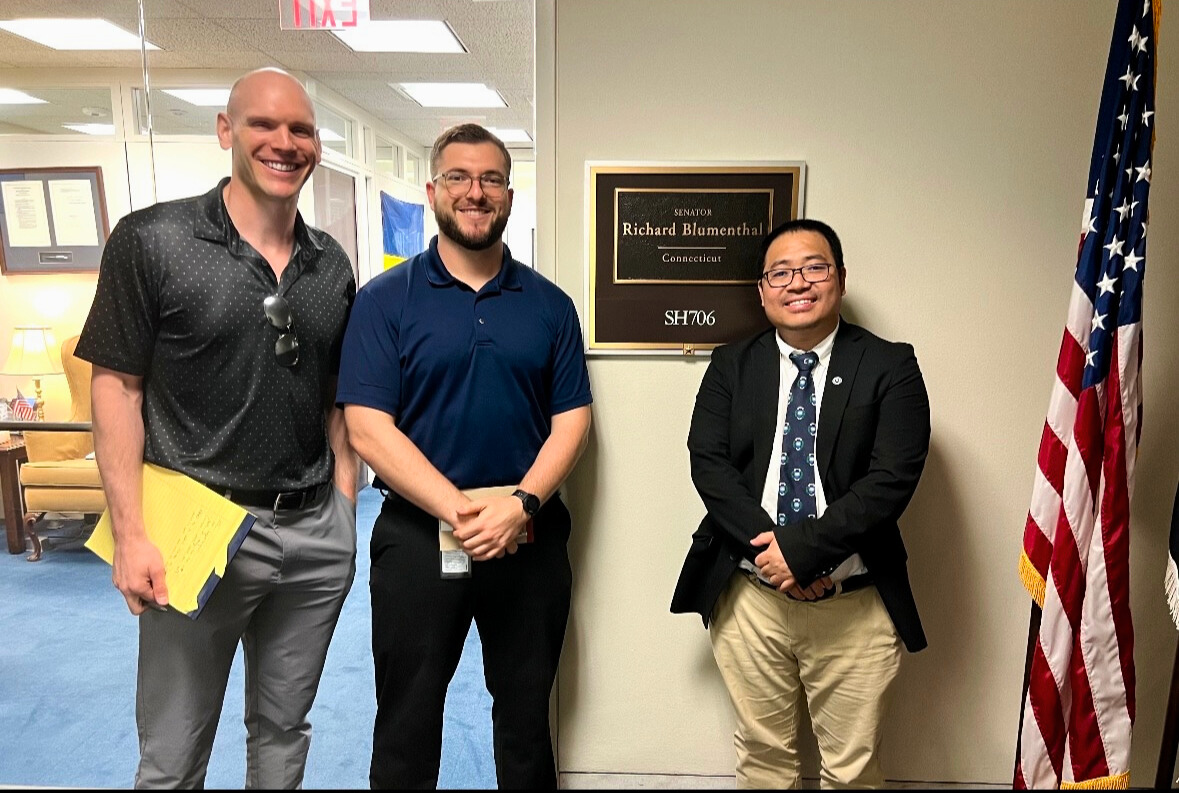
Later, Frigault was responsible for work on the Helsinki Commission, which assembles public hearings on issues related to the Organization for Security and Co-Operation in Europe. As an intern, Frigault was tasked with fact-checking, researching and analyzing amendments, notetaking, drafting questions, and building relationships with key stakeholders.
A curious investigator, Frigault said he loves asking the right questions, finding answers in the details, and translating those details to the page for a specific audience. In this environment, writing took many shapes—memos, proposals, even strategic emails.
So how did Frigault learn how to adapt and think critically and creatively on the fly? He credits his time in the U.S. Marine Corps and his education at Colorado State University with helping him develop the skills needed for a future career in foreign service.
“In my writing classes at CSU I was able to cultivate and adapt my writing to so many different situations, which I think really helped me get to where I am,” he said.
And Frigault will be the first to tell you—he’s not done yet. The road to becoming a U.S. foreign service officer is long, challenging, and full of pitstops along the way. The internship in D.C. was an important milestone, but certainly not the last. Thinking back to his first breakthrough, Frigault shared that his interest in becoming a career diplomat began in earnest in Kyrgyzstan.
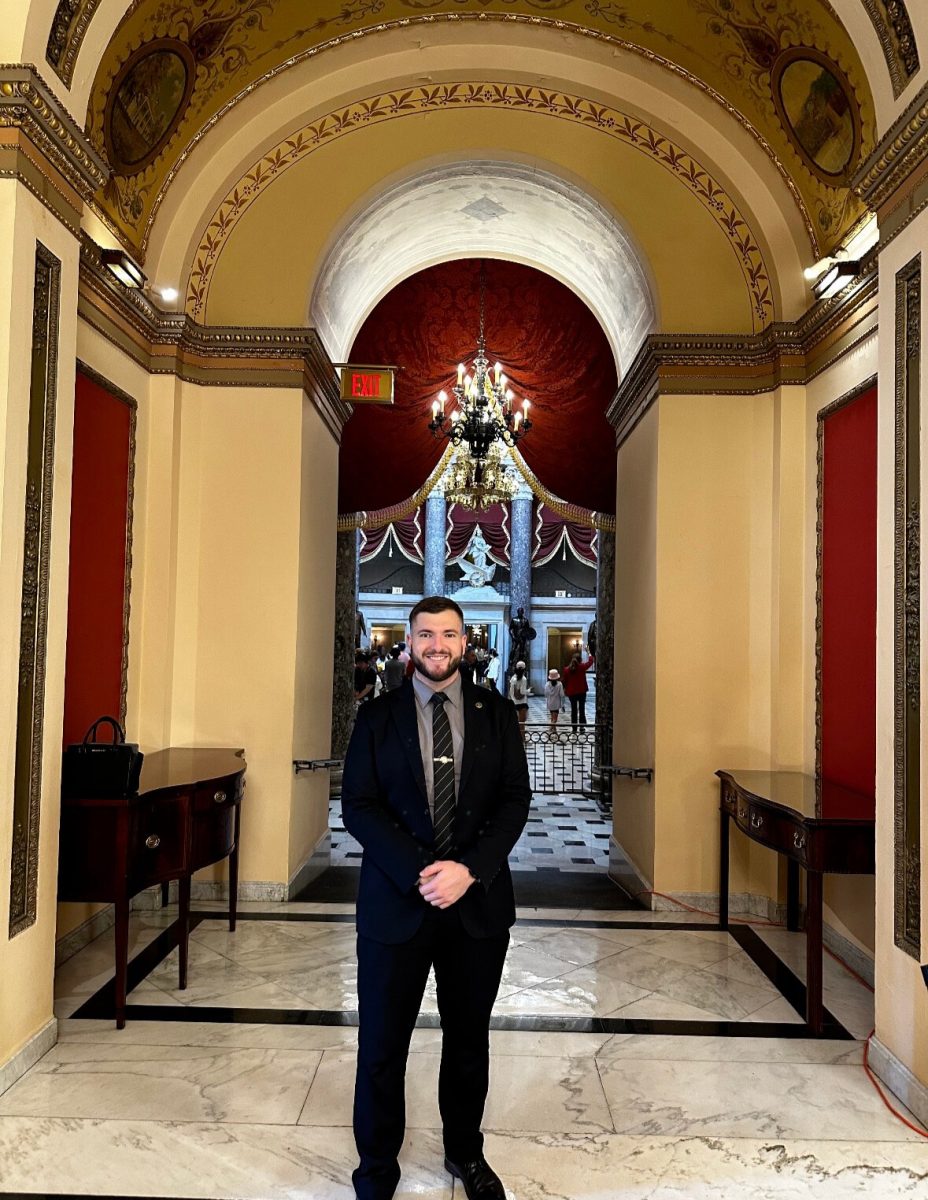
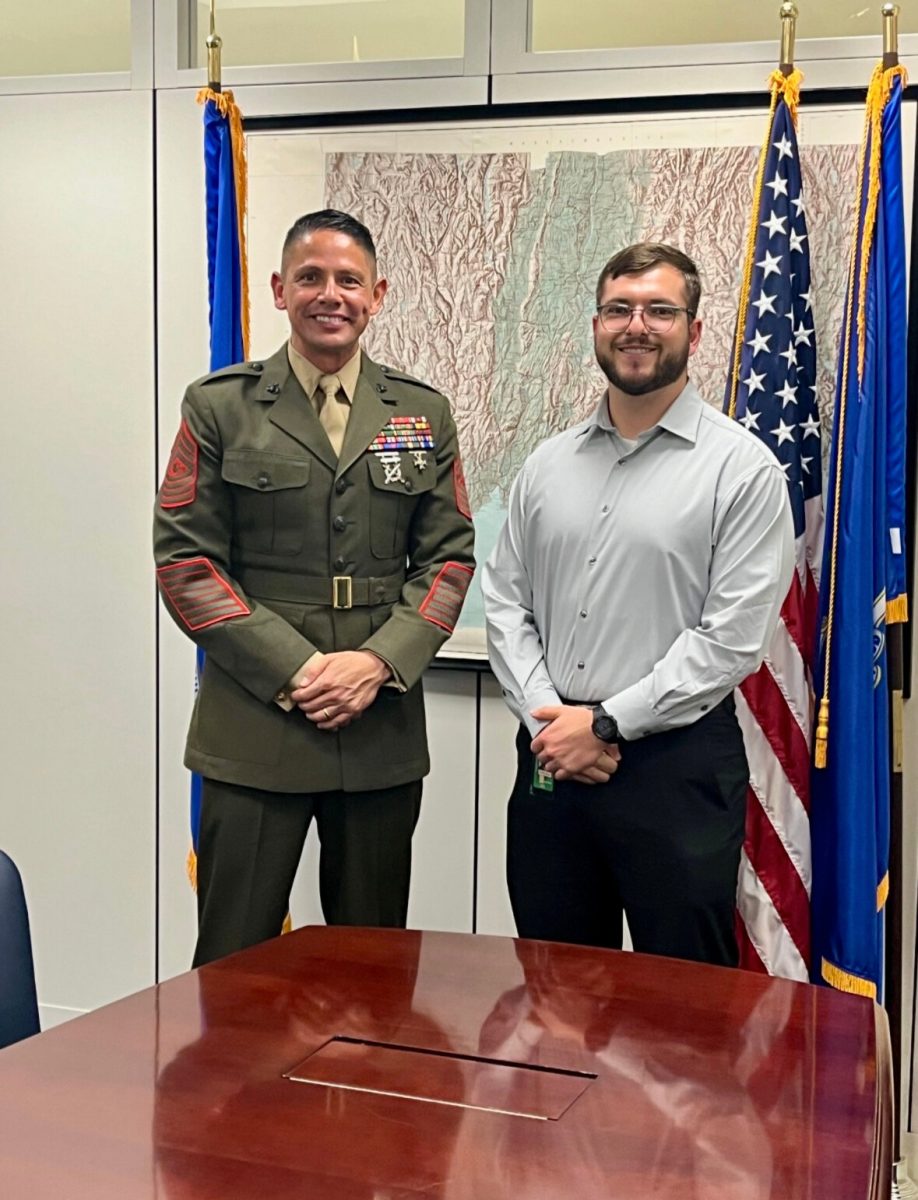
Serving the U.S. abroad
From 2015 to 2020, Frigault served in the Marines, working as a security guard at U.S. embassies in Pakistan, Kyrgyzstan, and South Korea. In this role, Frigault had the opportunity to observe diplomacy in action, while also developing an interest in the history of Eastern Europe and Central Asia, as well as the languages spoken across these regions, particularly Russian.
“Stationed in Bishkek, Kyrgyzstan, that was my first experience getting to explore the town and interact with people. Menus and names of restaurants were in Russian,” said Frigault. “All the patrons around me, everyone is speaking Russian, and I thought ‘Oh, wow, this is a really cool language.’”
While he recognized the phonology, or the sound of the language, from growing up with video games like Call of Duty, Frigault said his curiosity deepened after studying U.S. foreign policy and understanding just how useful Russian language comprehension is for U.S. security. As he continued to explore, he was struck by a new question: How do structures of power shape language and culture?
“I fell in love with Kyrgyzstan—it's absolutely beautiful there,” said Frigault. “And I love the people, but I thought to myself: Isn’t this fascinating? We're in the capital city and they're speaking Russian. They're not speaking their own national language, Kyrgyz. Why is that?”
As Frigault delved into the region’s history of imperialism and revolt, and the Soviet Union’s formation, he wondered how these events affected today’s identities and cultures.
“I was curious how the past continued to affect the identity, culture, and the language in Kyrgyzstan and the surrounding regions. It made me start to look at what’s going on in Armenia and Azerbaijan, all the regional conflict we've seen over there since even before the Soviet Union. But also, what’s going on in Ukraine, and if you look back to Crimea and the Russo-Georgian War,” said Frigault.
Once he completed his service in Kyrgyzstan, Frigault knew he wanted to learn more. While based in Seoul in 2020, he decided to apply to college. His path to a career in foreign service was taking shape, and the next stop on the road would prove to be essential to his goal.
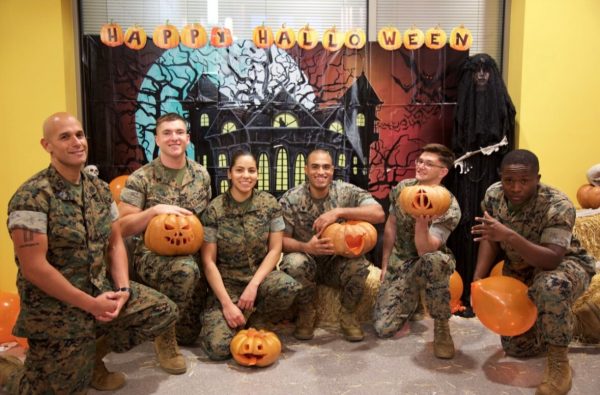
Finding support at CSU
Following a routine Google search—‘What universities best serve veterans?’—Frigault found his way to the CSU website after the University was named a top-five institution for veterans.
Drawn by Fort Collins’ foothills and the support he’d receive in the transition from active duty to full-time student, Frigault said CSU immediately felt like a good match. When he learned the College of Liberal Arts offered an interdisciplinary minor in Russian studies, as well as an English major specializing in linguistics, he felt he’d found the place.
“At CSU, I knew I could focus on the construction of languages, get writing practice, and study the Russian language. So it seemed like it'd be the perfect fit for me, and not only when it came to how happy I'd be living in the environment, but also the support I’d receive from the University.”
Frigault described his academic life as rigorous and compelling. On campus, he immersed himself in the Russian language through his involvement in Russian club and his coursework; he studied hard in his linguistics and rhetoric courses and completed experiential education abroad programs in the country of Georgia. When he wasn’t practicing his language skills or writing, Frigault was in Laporte working on a local family’s ranch.
Frigault credits the community he found at CSU for his success. Here, he was supported and encouraged by his teachers—particularly Lisa Langstraat, associate professor of English, and Sayat Temirbekov, instructor in the Department of Literature, Languages, and Cultures, as well as Mary Swanson, program director for the Office for Scholarship and Fellowship Advising.
In a rhetoric course taught by Langstraat, Frigault recalled how he initially struggled. “I remember it was so different from any class I’ve ever taken. But Professor Langstraat was an amazing guide walking me through the material. The work I did in that class has been very influential, especially with my time studying overseas and the future work I’ll have abroad,” said Frigault.
“She really taught me how to analyze different kinds of writing and rhetoric and step back and see how texts, speeches, images are approached and understood through different lenses and contexts.”
“[Professor Langstraat] really taught me how to analyze different kinds of writing and rhetoric and step back and see how texts, speeches, images are approached and understood through different lenses and contexts.”
After graduating in December 2023, Frigault found himself facing another fork in the road: Would a fellowship program accept him?
When he finally received the letter he’d been hoping for—his reaction can only be described as joyful, the biggest exhale of his life.
“It was just this huge moment of relief and the realization of knowing everything I've worked for in the last seven years—every class, study abroad experience, every sacrifice and scholarship—it was all geared toward this moment, and it paid off,” he said.
Langstraat wasn’t surprised when Frigault shared the news of the Rangel Fellowship. “Justin has an impressive work ethic, a creative intellect, and a gift for leadership—all born from the maturity and wisdom that come with serving in the military and being immersed in cultures other than his own,” she said.
Life as a Rangel Fellow
Now, halfway through his first year of graduate school at Texas A&M in the Masters of International Affairs program, Frigault is thankful for the journey that led him to live his dream.
“Right now, I'm reading 400-500 pages a week, taking difficult core courses, finding time for personal things like working out, studying Russian, and working to meet the GPA requirements for the Rangel Fellowship,” he said.
And yet, he doesn’t seem fazed. In fact, he said he finds the work quite thrilling. “All this hard work is beyond worth it,” said Frigault. “Every day, I’m working toward becoming a U.S. Foreign Service Officer. I’d love to become an officer in the consular section, primarily working on visas and American citizen services. Helping people achieve their dreams would be deeply fulfilling.”
According to the U.S. Department of State, foreign service employees “make a difference globally every day through solving intellectually challenging issues, innovating creatively, achieving lifelong learning and professional development, and helping people around the world.”
Frigault can’t wait to join them. “I love the challenges and hardships that come with moving around a lot; I love the communities you get to build and be involved with, and the opportunity to meet new people and experience new cultures, new religions. I want to be able to not only see the world but interact with it in a meaningful way.”

